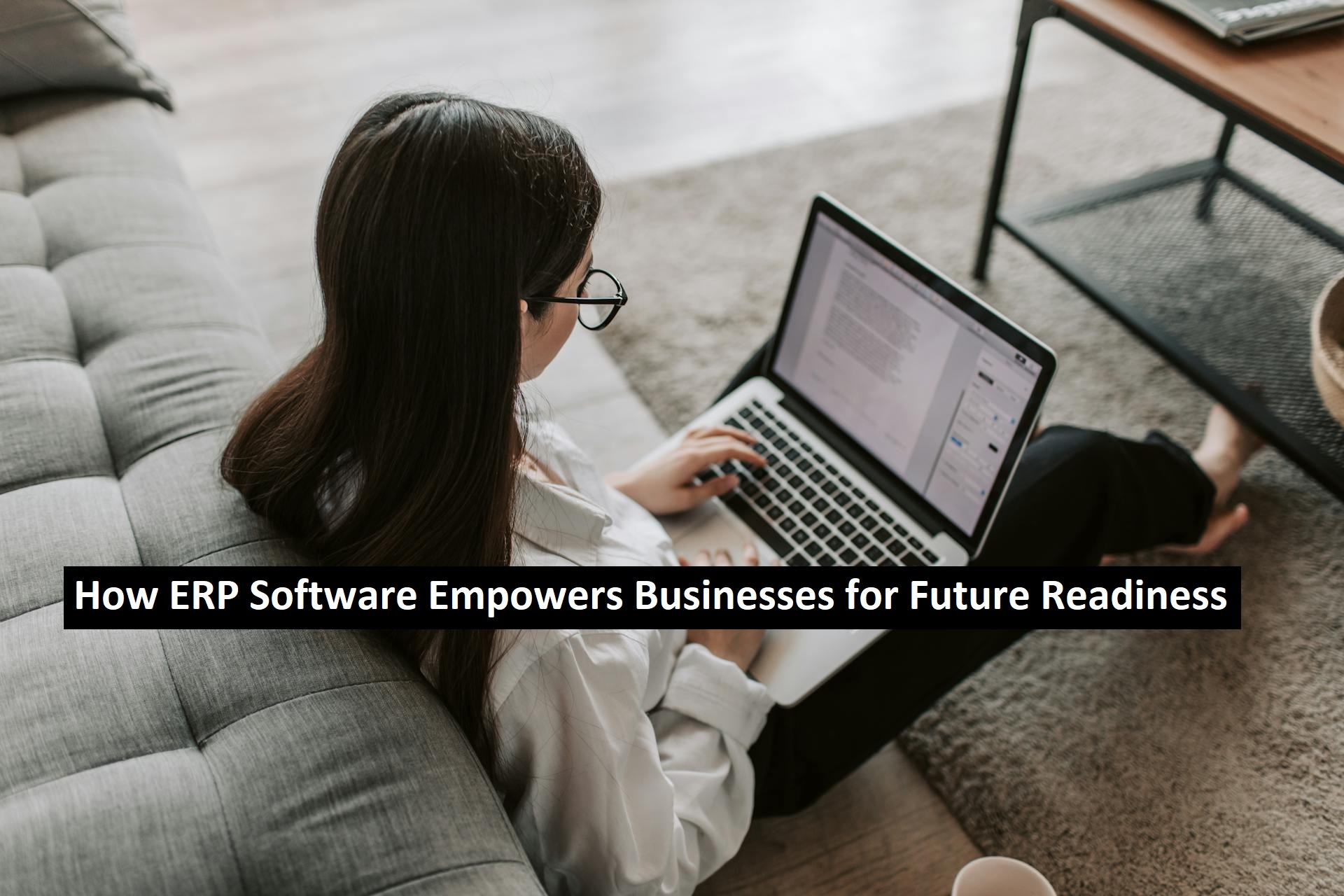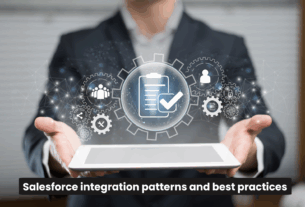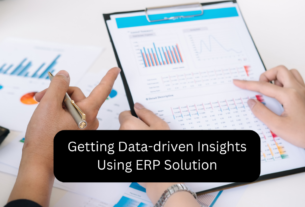What is ERP Software?
ERP Software is an integrated software that allows businesses to manage key aspects of their regular operations, and collect real-time information from different departments such as manufacturing, sales, human resources, supply chain, and finance, among others.
ERP Software plays a critical role in the daily planning and execution of various business operations. It gathers data from different sources, processes it, and uncovers different trends & patterns. It generates consolidated reports that make it easier for decision-makers to get a visual representation of the entire business operations and make informed decisions.
How Does ERP Software Benefit Businesses?
ERP offers a range of benefits for businesses across different industries. They are as follows:
1. Reduced Lead Time
ERP software provides a 360-degree view of the manufacturing process. It provides a comprehensive feature set to automate various business operations such as quoting and invoice generation. It helps optimise the lead time issues so that your product is available for customers as soon as it is designed and undergoes stringent quality checks.
2. Intelligent Analytics
ERP is bundled with powerful business intelligence and data analytical features that enable decision-makers to make timely & informed decisions rather than relying on gut feelings. Businesses can track and measure their performance using Key Performance Indicators (KPIs), and find areas of improvement.
3. Production Planning
ERP aids in the procurement of raw materials and planning the production activity to meet the changing market demands. It automates the process of purchasing raw materials through automated Purchase Orders (POs) to reduce the delays in the procurement process and mitigate errors & manual challenges.
4. Better Customer Satisfaction
ERP builds a complete database of the customers including their contact details, order history, and ticket conversation, among others. This provides complete visibility to the sales team so that they can provide a timely resolution to the customer’s complaints, and find new ways to sell their products to the existing customers.
5. Standardisation Across Processes
ERP brings standardisation across various business processes. Your business follows consistent practices and adopts a fixed data structure. Ultimately, it benefits from increased coordination and enhanced efficiency across different departments & branches. Furthermore, your customers gain the same level of customer service across different branches, and consistency in the quality of the product, no matter where they purchase it.
Top 5 Industries that Benefit from ERP Software
These days, ERP software caters to the unique needs of almost all industries. Here are the top 5 industries that significantly benefit from its implementation:
1. Manufacturing Industry
The manufacturing industry is one of the most complex industries that require thorough planning, execution, quality assessment, management of inventory, and strict compliance with regulatory aspects. Manufacturing ERP Software offers a comprehensive set of modules to provide these industry-specific capabilities and gain a competitive edge.
2. Food Producers
The food industry in India has to schedule production activities to meet the unexpected surge in demand while ensuring the food is safe for human consumption. ERP for Food Industry facilitates production planning, inventory management, quality checks, and recipe management capabilities to aid in different business processes and improve efficiency.
3. Retail Distributors
Distribution ERP helps retail distributors gain efficiency throughout their operations with order tracking, payment processing, and inventory management capabilities. They can efficiently track customer orders, provide timely resolution, check the availability of stock, and enhance overall customer experience.
4. Vehicle Manufacturing
The vehicle manufacturing industry deals with various design complexities. ERP for Automotive Industry provides powerful project planning & monitoring capabilities, integration with Internet of Things (IoT) devices, and customer support. Since most vehicle manufacturing companies operate on a global scale, they can also benefit from its multi-language, multi-currency, and multi-regulatory capabilities.
5. Pharma Industry
Pharma ERP empowers the pharma industry with robust planning, formula management, quality inspection, and inventory tracking capabilities. It supports various methods such as LIFO, FIFO, and FEFO to track the availability of stock. Overall, the pharma industry benefits from efficiency in the supply chain operations, lot traceability, and better cost analysis.
Read: How Much Does It Cost to Develop an App Like Wish?
What are the Different Types of ERP Software?
ERP Software can be classified into the following types based on its distinguished features and nature of operations:
1. On-premise ERP
On-premise ERP is also called Traditional ERP. It gives businesses complete control over their data. It is highly customizable as businesses can use third-party add-ons to customise the ERP for their unique business needs. One of the major hurdles in the implementation of On-premise ERP is that of large upfront fees. Small and mid-sized businesses may find it difficult to pay large upfront fees and spend a lot of money on hardware upgrades.
2. Cloud ERP
As the name describes, this type of ERP stores user data in the cloud. As your data is stored on the remote servers operated and maintained by your ERP vendor, it doesn’t require a significant upfront cost. The company pays a fixed monthly or annual fee to the vendor. Another crucial benefit of using a Cloud ERP is easy accessibility. You can access your data from your computer, Macbook, tablet, or phone, anytime, anywhere.
3. Hybrid ERP
Hybrid ERP offers the combination of both the On-premise and Cloud ERP to give you the taste of both solutions in a single platform. It offers the features of traditional ERP, besides an additional layer of high-level control over the user’s data. Thus, businesses can successfully deal with emerging business challenges such as data breaches and secure customer’s sensitive information amid rising threats.
4. Industry-specific ERP
Industry-specific ERP is tailored to meet the specific needs of any one industry such as retail, defence, or pharmaceutical. It provides a comprehensive set of feature sets to cater to various industry needs. A major benefit of using an Industry-specific ERP is that it is a cost-effective solution. It eliminates the need for purchasing additional modules that your business may not need.
5. Open-source ERP
Open-source ERP is a free tool that comes with the freedom to use, modify, and redistribute it as a modified version. It’s budget-friendly. Whether you’re a startup or a small or mid-sized organisation, you can grab a dynamic Open-source ERP to pave the way for success. Unlike paid ERPs, it doesn’t require evaluation. After downloading, the company can start organisation-wide deployment and further customise it to meet its unique needs.
Closing Thoughts
Modern-day businesses derive unprecedented benefits through the adoption of ERP Software. ERP allows decision-makers to gain cross-departmental visibility into business operations, and drive them towards growth & success. Sage X3 is an exceptional solution for businesses across different industries that are looking to spend less time digging data and improving productivity. It provides a single version of reality that allows decision-makers to monitor the pulse of their organisation, improve competitiveness in the market, and gain agility & profitability.




